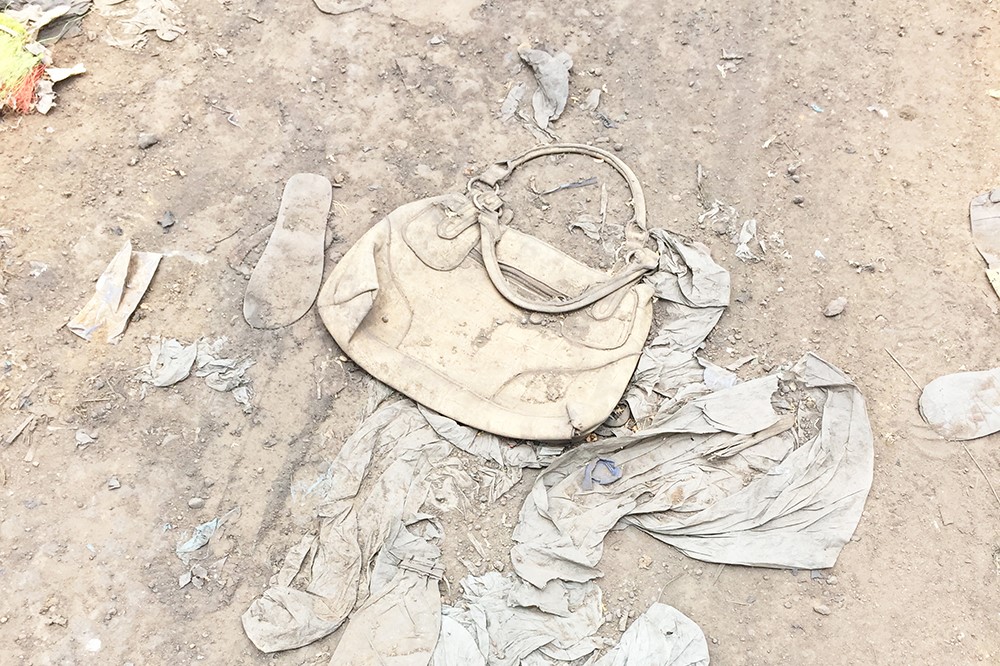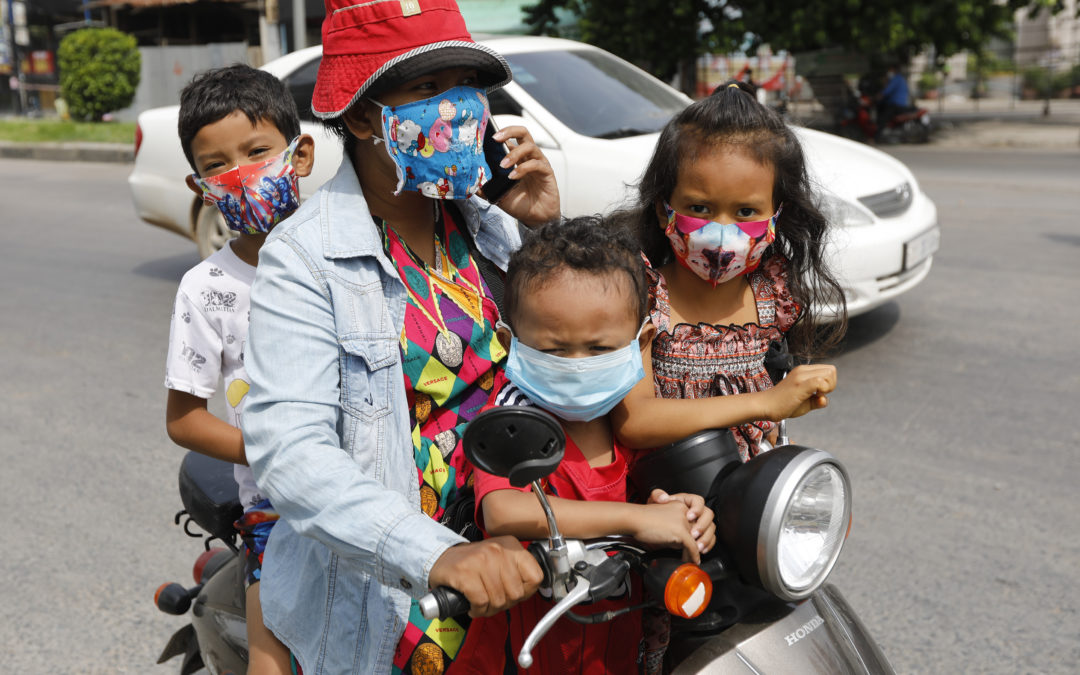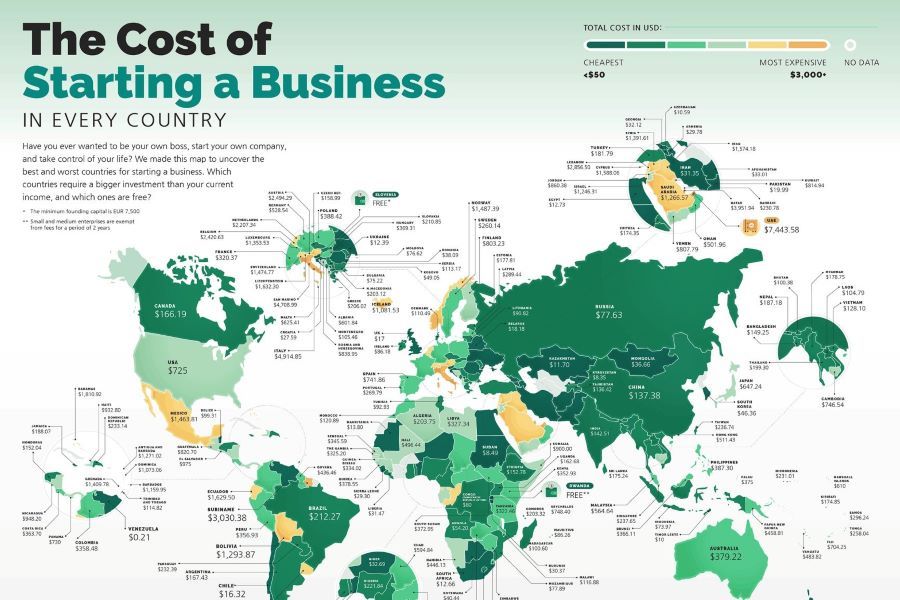
by Tara Heidger | 10 Nov 2021 | Climate change, Economy, Educators' Catalog, Environment, World
Clothing, especially from fast fashion, is a major contributor to global warming and pollution. Mountains of discarded garments end up in West Africa. (Photo courtesy of Dead White Man’s Clothes, a multimedia research project exploring the secondhand clothing trade in...
Recycling is not always the environmentally friendly thing to do. In 2012, 84% of recycled clothing ended up in landfills, often traveling thousands of miles to get there. Correspondent Tara Heidger shines a light on the relentless overproduction and overconsumption of cheap clothing and the disproportionate impact on countries like Ghana in the Global South, where the majority of discarded fashions end up. Beyond government policies and programs, individual consumption patterns must change.
Exercise: Ask students to consider how their own consumption might contribute to global warming, then use the four ‘R’s’ — repair, resale, reuse and rental — to create a schoolwide awareness campaign to help divert unwanted fashions from the wastestream.

by Sarah Edmonds | 8 Sep 2021 | Decoders, Economy, Educators' Catalog, World
Many nations’ economies are bouncing back from COVID-19, putting upward pressure on prices. The jury’s out on whether inflation is back to haunt us. Signs advertising jobs in Harmony, Pennsylvania, 21 May 2020. Increased economic growth in some economies...
Inflation can be a challenging topic to understand. What exactly is it, why is it important and is it really all that bad? Correspondent Sarah Edmonds brings her economics expertise to this decoder that unpacks the link between the prices of goods and services and the value of your money, and shows how consumer expectations as economies rebound could lead to an inflationary spiral.
Exercise: Ask students to compare the average price of goods in their city, such as food, gas or a new car, with average local wages since the pandemic began in March 2020. How have they changed (or not)?

by Alexander Nicoll | 26 Jul 2021 | Economy, Europe, Government, Health and Wellness, Identity, World
Our responses to COVID-19 have been driven by facts and perceptions of risk. As vaccinations increase, is it time for these perceptions to change? A family travels on a motorbike in Phnom Penh, Cambodia, after the government ended a lockdown of the city, 6 May 2021....

by Jim Wolf | 20 Jul 2021 | Asia, China, Donald Trump, Economy, Globalization, Government, Joe Biden, Politics, United States, World
Trump’s administration launched a sea change in U.S.-China relations. Is Joe Biden raising the stakes in taking tough action against China? U.S. President Joe Biden at the NATO summit in Brussels, Belgium, 14 June 2021 (EPA Photo/Kenzo Tribouillard). President...

by Jeremy Solomons | 14 Jul 2021 | Economy, Eyewitness, Identity, Personal Reflections
Not every successful entrepreneur wants above all to make money. But they do share certain traits. Read on if you want to break out on your own. “In the journey of an entrepreneur, the most important thing is self-belief and the ability to convert that belief...

by Jonathan Thatcher | 12 Jul 2021 | Asia, Economy, Educators' Catalog, Eyewitness, Health and Wellness
The world’s fourth most populous nation, Indonesia is struggling to keep fast-spreading COVID-19 from undermining its economic growth prospects. A man falls to the ground during the burial of a relative who died of COVID-19, Jakarta, Indonesia, 7 July 7 2021....
News Decoder aims to spotlight regions of the world that often don’t make the headlines. With an estimated 270 million people, Indonesia is the fourth most populous country after China, India and the United States. Correspondent Jonathan Thatcher, former Jakarta bureau chief for Reuters, draws our attention to the devastating impact of the pandemic on the island nation and why it matters. His article explains how COVID-19 tore through the country, stalling economic growth, and warns of the potential long-term impact on youth employment — what he calls “an especially frightening prospect.”
Exercise: Ask students how they think the pandemic will impact economic opportunity for young people in their country.

by Alan Wheatley | 7 Jul 2021 | Economy, Globalization, Human Rights, Politics, World
The gap between rich and poor in many nations is widening. But stock markets are not the culprit. Here’s what can be done to curb economic inequality. Demonstrators call for a $15 per hour minimum wage in the United States, Washington, DC, 19 May 2021. (AP...

by Bernd Debusmann | 21 Jun 2021 | Decoders, Economy, Educators' Catalog, Immigration, World
The world’s population is aging. How are we to pay for the pensions and healthcare of a burgeoning number of elderly? Elderly exercise with wooden dumbbells in Tokyo, Japan, 16 September 2019. (EPA-EFE/FRANCK ROBICHON) Call it baby bust and oldster boom — two...
Population growth has long been seen as a threat to humanity, and government efforts to limit births have either failed (India) or led to imbalances and inequities (China). Bernd Debusmann takes a look at the problems that a slowing rate in population growth poses for societies — problems that younger generations will need to manage in coming decades. Global aging will require tough decisions so societies can support the elderly — decisions your students will be asked to make.
Exercise: Ask your students to examine their country’s demographic trends and to compare its policies with those pursued by nations with a similar demographic outlook.

by Sadie Dyson | 29 Apr 2021 | Americas, Art, Culture, Economy, Health and Wellness, Hewitt, Student Posts, Youth Voices
Art and culture are integral to New York’s economy and sense of community. COVID-19 has hit the sector and its people hard. The Metropolitan Museum of Art Upper East Side, Manhattan. Circles spaced six feet apart, marking where people were to stand while waiting...

by Richard Hubbard | 27 Apr 2021 | Asia, China, Politics, Trade
China is punishing an “antagonistic” Australia with trade sanctions that many view as a test of Beijing’s geo-economic muscle. A man shops for Australian wine in Shanghai, China, 8 December 2020. Two days later, China imposed new import duties on...










